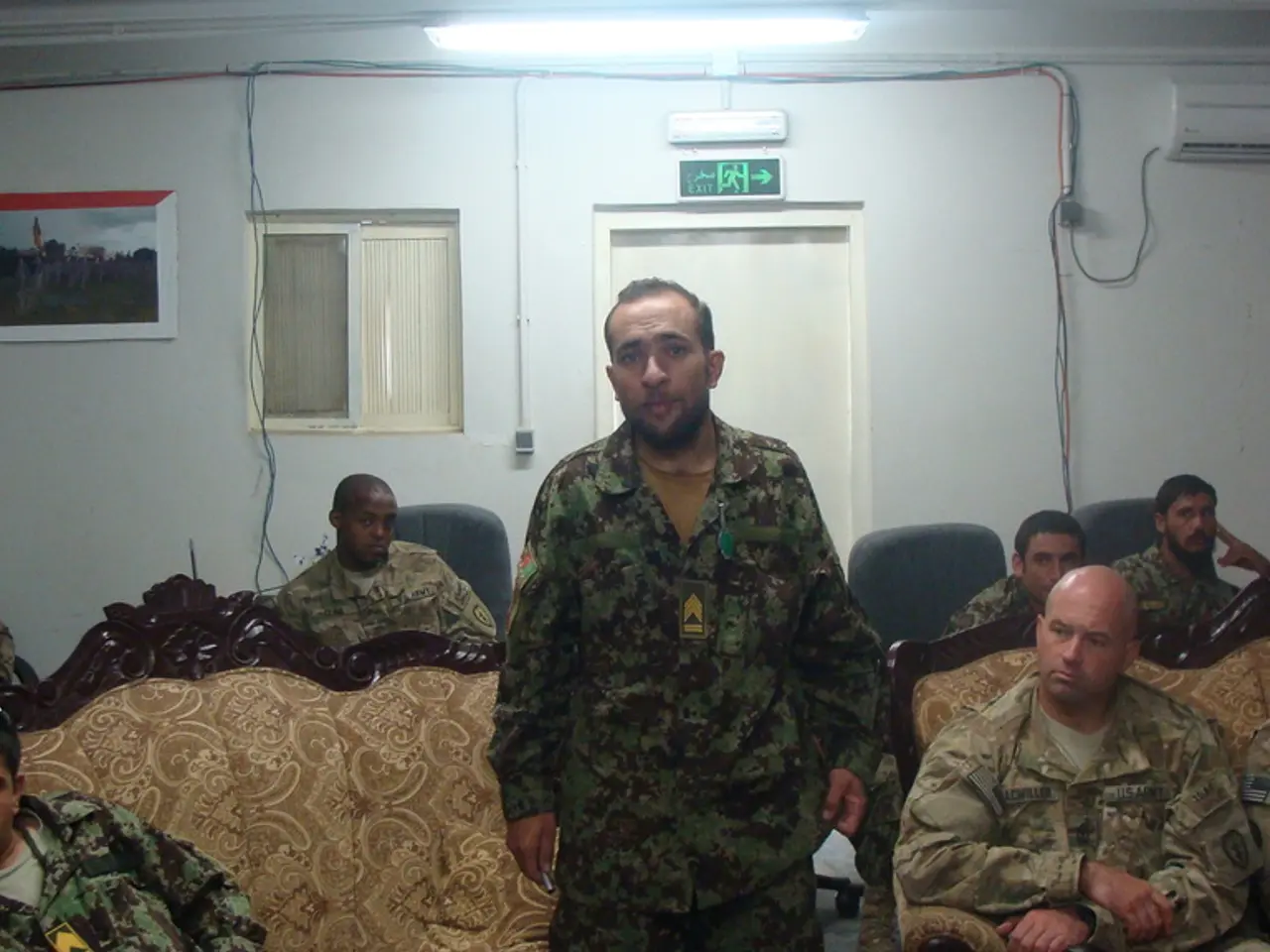Freethinking, Uncensored Discourse: Lanz & Precht's Take on Merz, Trump, and Iran
Sudden verbal altercation between Lanz and Precht on their podcast, with Lanz expressing, "Now it's you defending Merz!"
The latest episode of Lanz & Precht, the popular podcast, has ignited sparks. Richard David Precht is incensed, particularly about Friedrich Merz's recent characterization of Israel's attack on Iran as "dirty work." Precht demands a clear condemnation against such actions, grounded in international law. He also accuses the German government of a weak response regarding the US's role in regional conflicts, stating that Europe should chart its own path.
Markus Lanz offers a counterpoint. "Can we take ourselves seriously when we constantly talk about our values?" Lanz argues. He believes we must honor the values we claim in our political and social discourse, and advocates a more nuanced approach to geopolitical conflicts.
The Echoes of Past Debates
Reminded of the failures of past US Middle East policies, Precht is unconvinced by the argument that such actions are taken lightly. He contends that the Trump administration's hasty decision was a blunder that the German Chancellor should have condemned.
On the contrary, Lanz considers the moral complexities of these situations. "Neither Israel nor us want to be complicit in these atrocities," he states. But, he warns again about the dangers of losing the semantics debate in public discourse.
Nothing Sacred?
Precht takes issue with Merz's statement, seeing it as a justification for a violation of international law that fails to solve the problem. He rebukes Merz's assessment, arguing that it tarnishes Germany's reputation and leaves the country devoid of long-term credibility in foreign policy. Precht insists he is not advocating for an arms race or Iran's acquisition of nuclear weapons, but rather, a more cautious and respectful approach to international law.
Defining Our Values
Lanz and Precht's passionate exchange serves to highlight the complications in shaping and upholding values in a complex political landscape. While their differing viewpoints generate debate, it is clear that they seek to hold politicians accountable for their actions and their impact on both domestic and international policy. The ongoing conversation between Lanz and Precht is a testament to the importance of engaging in open, critical, and nuanced discussions about political and social issues.
Insights:
- Precht and Lanz's podcast, Lanz & Precht, features regular discussions on geopolitical issues, often challenging established political figures like Friedrich Merz.
- Their most recent episode discusses the moral and legal implications of Israel's attack on Iran and the US's involvement in Middle East conflicts.
- Both Lanz and Precht value a nuanced approach to such complex issues, emphasizing the need for adherence to international law and caution in the face of global conflicts.
- Lanz criticizes oversimplification and misinformation in political discourse, while Precht focuses on ethical and legal considerations.
- Their ongoing discussions offer valuable insights into the need for critical, engaged political discourse, especially during challenging geopolitical moments.
- The debate on Lanz & Precht's podcast, centered around Israel's attack on Iran and the US's role in Middle East conflicts, has sparked intense discussion about policy-and-legislation and politics.
- Richard David Precht advocates for a clear condemnation against such actions, grounded in international law, in the face of social-media discussions about war-and-conflicts.
- Markus Lanz, on the other hand, encourages a more nuanced approach to geopolitical conflicts, cautioning against losing the semantics debate in public discourse, particularly in the realm of pop-culture and entertainment.
- Precht criticizes Friedrich Merz's justification for a violation of international law, arguing that it damages Germany's reputation in crime-and-justice and general-news circumstances, and undermines the country's long-term credibility in policy-and-legislation.
- Both Lanz and Precht stress the importance of engaging in open, critical, and nuanced discussions about political and social issues, including the impact of celebrities and entertainment on shaping and upholding values within this complex landscape.







